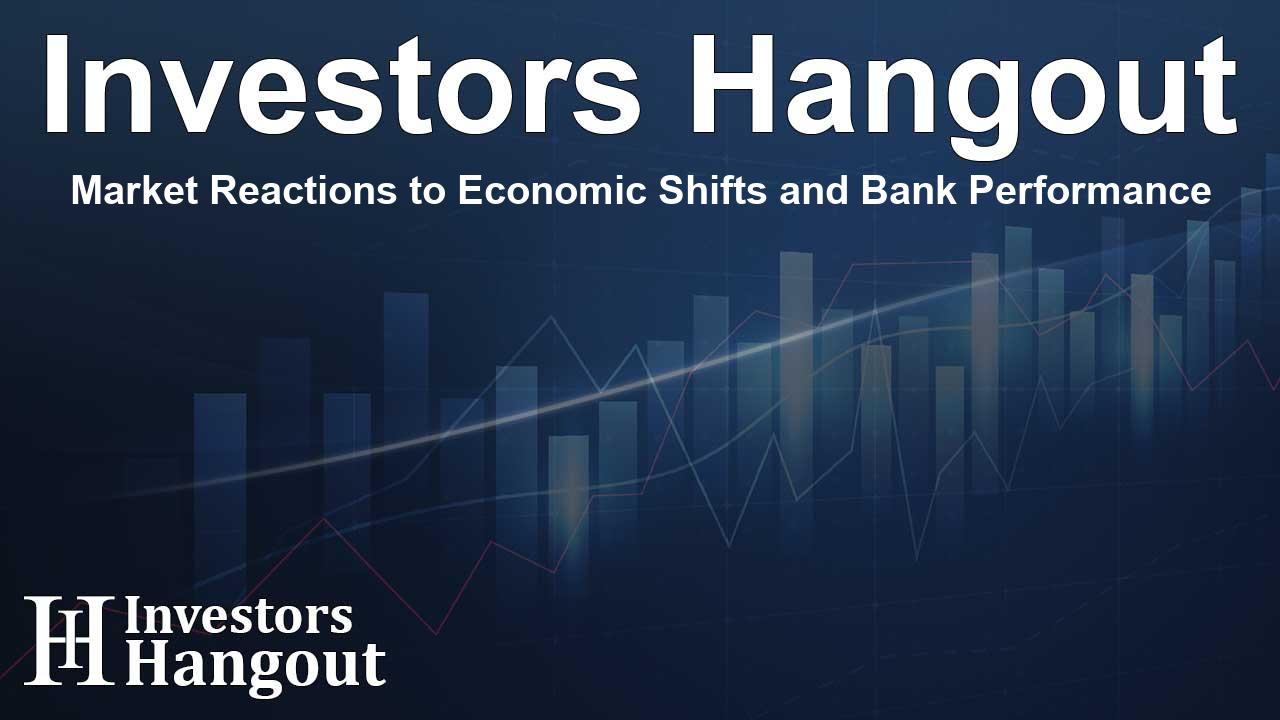Market Reactions to Economic Shifts and Bank Performance

U.S. Stock Index Futures Take Modest Steps Forward
The U.S. stock index futures experienced a slight increase recently. This was driven by mild easing in consumer inflation and a series of strong earnings from banks, which collectively led to noticeable gains across Wall Street. Investors expressed optimism in light of these developments, particularly regarding a newly proposed ceasefire between conflicting parties, which could decrease geopolitical tensions.
Despite the positive trends, caution remains prevalent among investors, especially with the upcoming presidential transition and the uncertainties surrounding potential trade tariffs. This situation creates a mixed atmosphere, where positive earnings are tempered by political unknowns.
Economic Data and Its Implications
Recent consumer price index (CPI) data indicated that inflation slightly lessened, which invigorated hopes for potential interest rate cuts by the Federal Reserve. The core CPI, which excludes volatile items, showed a marginal decline, adding to the speculation that cooling inflation could trigger a shift in monetary policy.
The financial markets are currently anticipating two rate cuts within the year, a downward adjustment from the initially projected four cuts. The persistent inflation suggests a landscape where risk-driven assets may come under pressure as investors navigate these changes.
Wall Street's Robust Performance Amid Strong Bank Earnings
On this particular trading day, Wall Street indices demonstrated powerful rallying effects, fueled by a wave of positive performances from major banks. Notable players such as JPMorgan Chase & Co (NYSE: JPM), Wells Fargo & Company (NYSE: WFC), and Goldman Sachs Group Inc (NYSE: GS) reported earnings that surpassed analysts’ expectations, contributing to the overall enhancement of market sentiment.
The rally extended beyond traditional banks, with asset management corporations such as BlackRock Inc (NYSE: BLK) showcasing robust earnings. These developments strengthen the narrative of resilience within the financial sector, enhancing investor confidence as the fourth-quarter earnings season progresses.
Additional market movers included U.S. shares of Brazilian airline Azul SA (NYSE: AZUL), which surged over 4% following news of its engagement in a non-binding agreement to explore a merger with rival Gol, potentially forming Brazil’s largest airline operator. These strategic moves reflect broader shifts in the market landscape as companies adapt to evolving economic conditions.
Understanding Market Trends and Outlooks
The collective surge in Wall Street indices signifies a recovery attempt from a sluggish start to the year. The S&P 500 climbed by an impressive 1.8% to settle at 5,949.81 points, with the Nasdaq Composite increasing by 2.5% to reach 19,511.23 points. Meanwhile, the Dow Jones Industrial Average marked a notable jump, closing 1.7% higher at 43,221.366 points. This reflects a strong rebound and signals resilience in investor appetite amid fluctuating economic indicators.
As the market continues to respond to economic stimuli, the ongoing discussions around inflation, interest rates, and corporate earnings will remain critical to shaping future market trajectories. The interplay between economic policy adjustments and corporate performance is more relevant than ever, making it crucial for investors to maintain vigilance in their strategies moving forward.
Frequently Asked Questions
1. What drove the recent rise in U.S. stock index futures?
U.S. stock index futures have risen due to slightly softer consumer inflation data and strong earnings from key banks.
2. How do inflation trends impact the Federal Reserve's decisions?
Lower inflation trends may prompt the Federal Reserve to consider interest rate cuts, which can influence financial markets significantly.
3. Which banks reported stronger-than-expected earnings recently?
Major banks such as JPMorgan Chase, Wells Fargo, and Goldman Sachs reported better-than-expected earnings, boosting market confidence.
4. What is the outlook for future interest rates?
Markets currently project two interest rate cuts within the year, down from the initially expected four cuts, as a response to inflation trends.
5. How did geopolitical events affect the market?
The recent ceasefire deal between Israel and Hamas decreased geopolitical tensions, creating a favorable environment for investors and the stock market.
About Investors Hangout
Investors Hangout is a leading online stock forum for financial discussion and learning, offering a wide range of free tools and resources. It draws in traders of all levels, who exchange market knowledge, investigate trading tactics, and keep an eye on industry developments in real time. Featuring financial articles, stock message boards, quotes, charts, company profiles, and live news updates. Through cooperative learning and a wealth of informational resources, it helps users from novices creating their first portfolios to experts honing their techniques. Join Investors Hangout today: https://investorshangout.com/
Disclaimer: The content of this article is solely for general informational purposes only; it does not represent legal, financial, or investment advice. Investors Hangout does not offer financial advice; the author is not a licensed financial advisor. Consult a qualified advisor before making any financial or investment decisions based on this article. The author's interpretation of publicly available data presented here; as a result, they should not be taken as advice to purchase, sell, or hold any securities mentioned or any other investments. If any of the material offered here is inaccurate, please contact us for corrections.